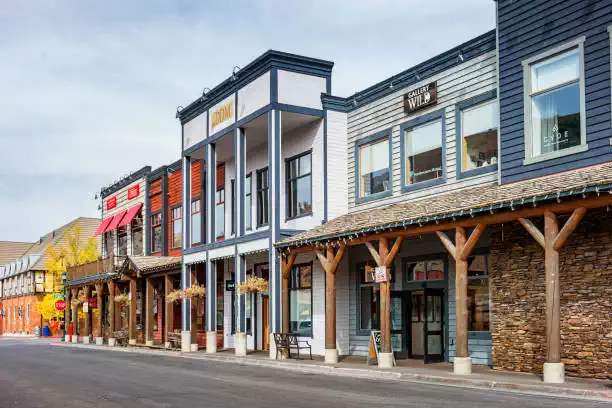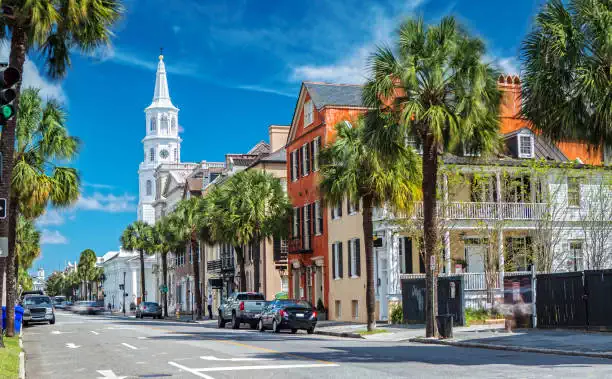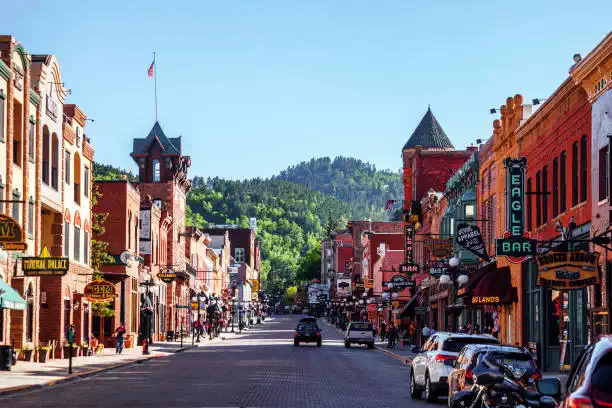Grants for Seniors in Indiana
Last Updated on April 18, 2024 by Rachel
Help for Seniors in Indiana – 28 Assistance Programs
Indiana is one of the most comfortable states for the elderly if they love spending time at home, enjoying the libraries, and hanging out with their friends in a museum, park, or restaurant. This state presents very affordable places in terms of the cost of living and there is a broad range of programs and benefits that are provided by the federal government, state government, and local charities.
State Resources for Seniors
The Indiana Family and Social Services Administration (FSSA) oversees the Division of Aging in the state. Relevant resources are provided for seniors, to help them get access to services that they require. Information provided on the Division of Aging website includes Medicaid details, food aid programs, etc. Adult Protective Services are also offered, to help seniors who may be victims of abuse. Residents of Indiana can get access to all these resources at https://www.in.gov/fssa/da/.
Financial Assistance
Elderly residents in Indiana may be eligible for Supplemental Security Income (SSI). This is a federal program that provides financial aid to seniors in need. Those who qualify will receive SSI benefits on a monthly basis. Single persons are entitled to $771 per month while couples can get $1,157 per month. These funds are intended to be used for the basic needs of food, clothes and shelter. Seniors with other sources of income may receive slightly lower amounts than those stated. More details on the SSI program in Indiana can be found at https://www.benefits.com/social-security-disability/indiana.
Employment Assistance
The Indiana Senior Community Service Employment Program (SCSEP) was established and funded by the U.S. Department of Labor to provide part-time jobs for older residents. It presents training and skill development opportunities for seniors. People who are 55 years of age and above are eligible to apply. Some of these part-time jobs can be permanent based on the case. For further information, go to https://www.dol.gov/agencies/eta/seniors or get in touch with 1 877 872 5627. Find out which part-time employment suit your needs. We’ve compiled a list of the Best Part-Time Jobs For Seniors.
The Representative Payment Program is sponsored by the U.S. Social Security Administration for people in financial need. This is a special program for seniors who cannot handle their financial affairs by themselves due to health issues and have no one to help them. Qualified participants will benefit from federal government services which are SSI, SSDI, and Social Security. For further questions, visit https://www.ssa.gov/payee/ or call 1 800 772 1213.
Housing and Rent Assistance
The Rental Housing Tax Credit (RHTC) in Indiana is managed by the state government for low and moderate-income residents. This program assists low-cost rental housing for seniors who are in financial hardship. Those who are at or under the 60 percent of area median income are qualified for this benefit. For more information and apply, please visit https://www.in.gov/ihcda/4090.htm or make a call at 800 872 0371.
Indiana Permanent Supportive Housing Initiative (IPSHI) is both supported by the private sector and the Indiana Housing and Community Development Authority (IHCDA) with the aim of decreasing homelessness. This program assists long-term housing solutions for the ones in need. Seniors are prioritized by this program. Since it is a well-known program in Indiana, it is better to apply as soon as possible. Further information can be accessed by visiting https://www.in.gov/ihcda/4091.htm or dial 317 233 9564.
Section 8-Housing Choice Voucher Program Indiana is financed by the federal government for low and moderate-income households. This program aims to make sure that everyone in need can pay their rent. Eligible candidates can decide on the apartment, house, or flat. This program pays 70 percent of the rent and it may also offer to help with the utility bills based on the economic condition of the applicants. Section 8 works with another program called The HUD-Veterans Affairs Supportive Housing (HUD-VASH). The VASH is a special rent assistance support for homeless veterans. It not only provides rent assistance but also helps with medical conditions. To learn more https://www.in.gov/ihcda/4257.htm or call 317 232 7777.
For as long as their houses are a secure setting for them, seniors can live independently and quietly there. In addition to housing and rent aid, seniors also have access to a range of financial support programs that help with home maintenance. The resources are listed under Home Repair Grants.
Elderly residents who need help to repair or modify their homes can apply for the Single Family Housing Repair Loans and Grants Program. Grants of up to $10,000 are provided to seniors over the age of 65 years. The funds are to be used to make repairs to the home or modify the home to remove health and safety hazards which may pose a challenge. Those under the age of 62 years are not eligible for grants but may qualify for a loan of up to $40,000. This loan is repayable over a 20-year period and comes with a fixed 1% interest rate. Grant beneficiaries are expected to retain ownership of their homes for at least 3 years after receiving the grant. Selling the home earlier than that would require them to repay the grant. For homes that need extensive repairs, the owners can combine the loan and grant (if eligible) to get a total of $50,000. Further details can be found at https://www.rd.usda.gov/programs-services/single-family-housing-programs/single-family-housing-repair-loans-grants.
Healthcare Assistance
Seniors aged 65 and older may be eligible to get healthcare assistance under the Medicare Program. Medicare is a federal health insurance program set up to help challenged seniors access affordable healthcare. Medicare provides some form of relief on healthcare bills, paying part of the medical bills of eligible citizens. Medicare has four subprograms that cover different types of medical expenses like hospital stays, medical procedures, prescription drugs, etc. Seniors can find information on the Medicare program in Indiana at https://www.in.gov/ship/medicare-coverage/. Seniors who are 3 months away from turning 65 can apply so that the coverage would take effect from their 65th birthday.
The federal Medicaid Program is another helpful resource for elderly citizens in need of medical assistance. Medicaid is designed to help low-income residents access affordable healthcare services. Under the program, seniors may receive subsidized healthcare, covering a variety of services. Indiana also offers the Hoosier Care Connect program for seniors in the state. This is a special Medicaid program that focuses on those who are ineligible for Medicare coverage. Seniors applying for Hoosier Care Connect can work with their doctors to select the best care plan available for them. More details can be gotten from https://www.in.gov/medicaid/members/member-programs/hoosier-care-connect/.
The Program of All Inclusive Care for the Elderly (PACE) is an initiative that takes care of seniors who are certified to need nursing home care. PACE serves residents over the age of 55 and pays for the needed care. The services covered also include home healthcare, respite care, transportation, etc. More information on PACE can be obtained from https://www.in.gov/fssa/da/program-of-all-inclusive-care-for-the-elderly/.
Indiana’s Community and Home Options to Institutional Care for the Elderly and Disabled Program is a healthcare service for seniors. It aims to make sure that seniors who live by themselves at home are healthy and supported. Even though the main goal of this program is to provide medical supplies to seniors, it also offers transportation, home-delivered food, housekeeping, and other housing services in case of need. People who are 60 years of age and above are qualified for this program. Explore more opportunities through the following link https://www.in.gov/fssa/da/community-and-home-options-to-institutional-care-for-the-elderly-and-disabled/ or by phone at 1 800 457 8283.
Indiana State Health Insurance Assistance Program (SHIP) is led by the Administration on Community Living and the Indiana Department of Insurance for residents who are registered to Medicare. It assists free of charge guidance and information regarding health issues. This program is based on volunteer people. They are trained and ready to answer seniors’ questions about health considerations. For more information, visit https://www.in.gov/ship/index.htm or dial 800 452 4800.
Problems with dental health in seniors are typically brought on by aging. Most senior citizens avoid going to the dentist. This shouldn’t be the case since that funding is specifically allocated for oral treatment. Visit Dental Grants in Indiana to learn more about how senior individuals can access these services.
Help with Dental Care
The Dental Lifeline Network operates Indiana Donated Dental Services. This is a program that provides free dental care to seniors who are unable to pay for the dental services they need. Comprehensive dental treatment is provided to Indiana residents who are over the age of 65. The services covered are cleanings, crowns, fillings, extractions, etc. Donated Dental Services is made possible by a network of dentists, clinics and companies that volunteer time and materials to be used to attend to the needs of seniors. Emergency services are not available as there may be a waiting list for services. Those interested in applying for dental care assistance can visit https://indental.org/public-resources/low-cost-dental-care/donated-dental-services/.
Senior residents can also get a statewide directory of dental clinics in the state that offer low-cost services. Some of these clinics also charge on a sliding scale basis, in which case the cost is determined by the income of the patient. The directory can be found at https://indental.org/public-resources/low-cost-dental-care/.
Utility Bills Assistance
Indianapolis Power and Light is a local company that offers discounts for low and moderate-income families. Eligible seniors also may benefit from payment extensions and receive energy efficiency equipment. For more information, please see https://www.aesindiana.com/ or call 888 261 8222.
Indiana Low Income Home Energy Assistance Program (LIHEAP) is financed by the federal government to help with the utility bills for low and moderate-income residents. Seniors are one of the primary groups for this program. It offers a discount on the bills. To access the application form, click on https://ihcda.rhsconnect.com/ or call 800 872 0371.
The Indiana Universal Service Program (USP) is available to people who are registered to LIHEAP. Qualified people will receive a monthly discount between 9 and 32 percent. The main criterion is the total household income. Apart from this monthly discount, weatherization services can be presented depending on the economic condition of the applicant. To learn more, go to https://www.hhs.gov/.
The Catholic Charities of Indianapolis also helps seniors with utility bill payment. This is done through their Crisis Office where seniors can receive financial assistance for rent, gas, utilities, etc. This program helps prevent utility disconnection but may not pay off the entire utility bills. For more details on the program, visit https://www.archindy.org/cc/indianapolis/crisis.html.
There are various programs available to assist seniors with their utility expenses. More options might be explored at Help with Bills.
Food Assistance
The Seniors Farmers’ Market Nutrition Program (SFMNP) is a federal program set up to provide nutritional assistance to seniors. The program is open to low-income seniors who are at least 60 years old. Citizens who are 55 years and above may also benefit from the program if they reside in housing that is primarily occupied by elderly residents. To qualify as a low-income, the senior’s income should not exceed 185% of the federal poverty guidelines. To determine if your household is residing below the poverty line, you can make use of the Federal Poverty Level Calculator. Eligible seniors are given coupons to purchase fresh locally grown fruits, vegetables and other food items. More information on SFMNP can be gotten from https://www.in.gov/health/wic/farmers-marketsstands-information/.
- Non-slip Bath Mats for Seniors
- Wheelchair Carriers for Seniors
- Grants for Seniors in Oklahoma
- Senior Statistics of Vermont
- Senior Centers in Montana
- Healthy Weight Loss Tips for Seniors
- Medical Alert Systems for Seniors
- Grants for Seniors in Illinois
- Senior Centers in Michigan
- Long-Term Care Insurance for Seniors
The state also runs a nutrition program that serves seniors over the age of 60 and their spouses. Most meals are served in a congregate setting to promote socialization and provide an opportunity for nutrition education. Meals are also delivered to the homes of seniors who are home-bound and unable to come to a congregate meal center. All meals served are nutritionally compliant and prepared to meet the dietary needs of the seniors. Additional details are available at https://www.in.gov/fssa/da/nutrition/.
The Supplemental Nutrition Assistance Program (SNAP) is another federal program that helps low-income and no-income seniors get access to food materials. Eligible seniors receive a debit card know as an Electronic Benefits Transfer (EBT) card. This card is loaded with funds every month and can be used to purchase approved food items from grocery stores. Information on SNAP in Indiana can be found at https://www.in.gov/fssa/dfr/snap-food-assistance/about-snap/.
Neighborhood Meal Sites has had many offices throughout Indiana since 1974. These sites were created by the Connecting Central Indiana Council on Aging for seniors and individuals who have a disability and cannot cook at home. CICOA is an effective non-governmental community establishment in Indiana. These sites provide healthy and nutritious meals for eligible residents to protect their health. Apart from hot and cold home-delivered food, some people may receive monthly food bags based on their financial status. Volunteer dietitians also present education about health and nutritious food. Find out more information at https://cicoa.org/services/senior-meals-nutrition/ or contact 317 803 6042.
Operation Round-Up is a program led by the Central Indiana Power Company for residents in need. Eligible applicants can get medical care at home, medical supplies, hot or cold meals, groceries, clothing, and housing support based on their financial condition. This company first started to provide utility bill assistance in 1995. Then it extended its services for local people having economic difficulties. Seniors may get in touch with the Central Indiana Power Company for any of these services. Visit https://www.sciremc.com/roundup or call toll-free 800 264 7362.
Several initiatives exist to assist seniors in need in having access to nutritious and balanced meals that support excellent health. Information on these services can be found at Food Programs for Seniors.
Transportation Assistance
Various counties in the state participate in the ADA Paratransit Program. This is a federal program that provides low-cost transport options to seniors and disabled individuals. The vehicles run on fixed routes but may also be requested for special pickup services. Vehicles used for this program are customized to allow access to individuals who may have restricted mobility and need accessibility assistance such as wheelchair ramps. Interested residents can visit https://www.transit.dot.gov/regulations-and-guidance/civil-rights-ada/frequently-asked-questions for more details on the program.
Residents of North Township can also benefit from the Dial-A-Ride program. Curb-to-curb transportation is available for seniors who need assistance getting to medical appointments, shopping and other activities. It is important to note that emergency medical transportation is not provided under this program and rides are to be scheduled ahead of time. Seniors can visit https://northtownshiptrustee.com/dial-a-ride/ to book a ride.
Many charity organizations also provide non-emergency medical transport services for seniors in the state. Rides are usually done by volunteers and services may be free of very low-cost.
Charities and Organizations
Morning Light Inc. is a charity organization that focuses on helping seniors with limited means. The charity has housing facilities to accommodate seniors in need of shelter. The Abbie Hunt Bryce home offered by Morning Light is a residential home where seniors live in a family setting and have staff and volunteers who care for them. Medical assistance is also provided to the residents to help give the best quality of life. Seniors who are still working but have very low income can apply to stay at Pennwood Place Apartments. This is a low-cost residential building with apartment suites that have a kitchen, bedroom, bathroom, living room and a washer. A communal gym is also available, to help residents stay in shape physically. More details on the activities on Morning light can be found on their website https://www.morninglightinc.org/.
The Catholic Charities is another organization that renders assistance to seniors. Catholic Charities provides help with food, shelter and clothing. Occasionally, financial assistance may be rendered but this is subject to the availability of funds. For more information, visit https://www.archindy.org/cc/index.html.
The Salvation Army also has arrangements available for senior citizens in Indiana. Food pantries are available for seniors to get food items that they desire. Some locations also have a clothes store, from where residents can pick up essential clothing, especially thick clothes for the winter months. Elderly citizens who are homeless can also take advantage of the shelter options offered by the Salvation Army. Other available services can be found at https://centralusa.salvationarmy.org/indiana/.
Assistance for Senior Veterans
The Salvation Army offers help to veterans in Indiana, provided them with shelter, food and other forms of assistance. Veterans can also get referrals to organizations that may be able to provide more comprehensive care for them. Veterans in Indiana can visit https://www.salvationarmyusa.org/usn/serve-veterans/ for more information on the Salvation Army’s help program.
Veterans can also apply for grants under the Veterans of Foreign Wars (VFW) Unmet Needs Program. This program gives financial aid of up to $1,500 to assist veterans pay for their basic life needs like food, rent, utilities, etc. The money received is not a loan and should not be repaid. Payments are usually made directly to the creditor to ease the burden. More information on this program can be obtained from https://www.vfw.org/assistance/financial-grants, along with the eligibility criteria listed at https://vfworg-cdn.azureedge.net/-/media/VFWSite/Files/Assistance/UnmetNeedsEligibilityCriteria.pdf?la=en&v=1&d=20220520T210259Z.
The Military Family Relief Fund (MFRF) is another avenue for veterans in Indiana to seek help. Provided by the Indiana Department of Veterans Affairs, the MFRF gives financial assistance to veterans to pay for their rent, utilities, medical care, mortgage, food, etc. Veterans who require bill payment assistance must wait until the MFRF makes a payment as reimbursement is not given for bills that have already been paid. Assistance of up to $2,500 may be provided to eligible veterans. Indiana veterans can visit https://www.in.gov/dva/about-idva/links/military-family-relief-fund/what-bills-qualify/ for more information on the grant.
Frequently Asked Questions (FAQs)
1. What financial assistance is available to seniors in Indiana? Seniors in Indiana can access financial assistance through the Energy Assistance Program (EAP) for help with utility bills, the Supplemental Nutrition Assistance Program (SNAP) for food assistance, and the Indiana Prescription Drug Program, which helps with the cost of medications.
2. How can seniors apply for Medicaid in Indiana? Medicaid applications can be submitted online through the Indiana Family and Social Services Administration (FSSA) Benefits Portal, by mail, or in person at a local Division of Family Resources (DFR) office. Seniors need to provide proof of age, income, residency, and other personal information.
3. What housing and rent assistance programs are available to seniors in Indiana? The Indiana Housing and Community Development Authority (IHCDA) administers the Section 8 Housing Choice Voucher Program, providing rental assistance to low-income individuals, including seniors. Additionally, the IHCDA offers information on affordable senior housing developments and apartments.
4. Can seniors in Indiana receive assistance with utility bills? Yes, the Energy Assistance Program (EAP) in Indiana provides financial aid to eligible senior households to help cover the cost of heating and cooling bills, ensuring utilities remain connected throughout the year.
5. How do seniors get help with prescription medications in Indiana? The Indiana Prescription Drug Program offers discounts on medications for eligible seniors. Moreover, the State Health Insurance Assistance Program (SHIP) provides free counseling to seniors on Medicare Part D plans and other prescription assistance options.
6. Are there property tax benefits for seniors in Indiana? Indiana offers the Over 65 Deduction and the Over 65 Circuit Breaker Credit, which provide property tax relief to qualifying seniors based on age, income, and property value criteria. Applications are made through the local county auditor’s office.
7. What in-home care services are available for seniors in Indiana? The Indiana Division of Aging administers the Aged and Disabled Waiver Program, offering services such as personal care, homemaking, respite, and meal delivery to help seniors maintain independence in their homes.
8. How can seniors access transportation services in Indiana? Many communities in Indiana offer transportation services specifically for seniors, including reduced-fare or free rides on public transit and specialized transportation programs for medical appointments and shopping, coordinated by local Area Agencies on Aging.
9. What nutritional programs are available for seniors in Indiana? The Senior Nutrition Program in Indiana provides congregate meals at local senior centers and home-delivered meals to eligible homebound seniors, aiming to ensure they receive nutritious meals and social interaction.
10. How can seniors in Indiana receive legal assistance? Indiana Legal Services offers free legal aid to low-income seniors on issues like healthcare, housing, consumer rights, and elder abuse. Seniors can contact their local office for assistance.







